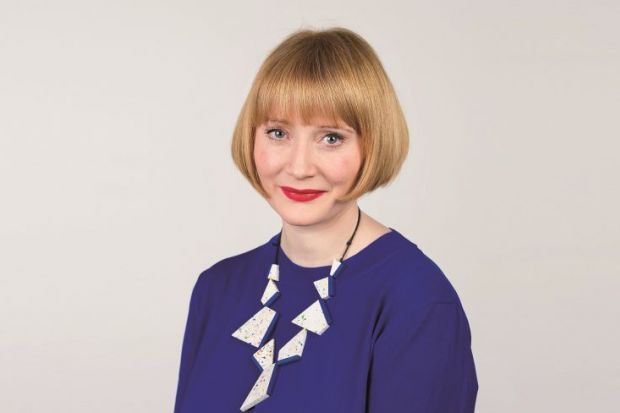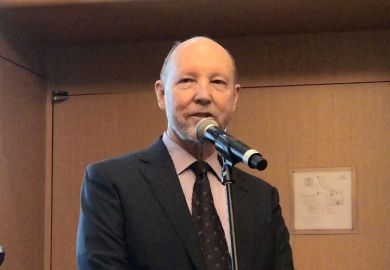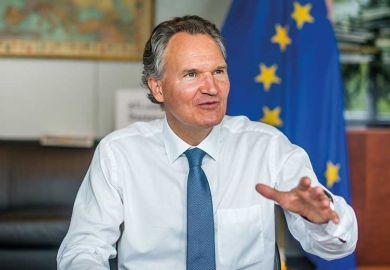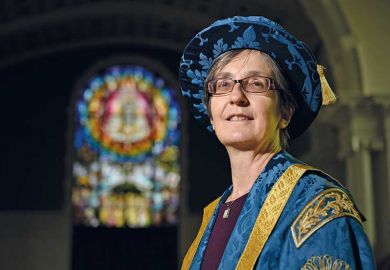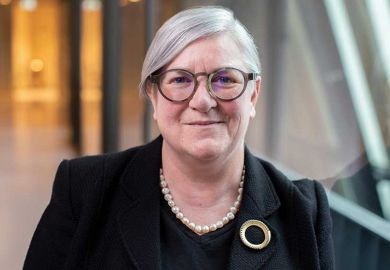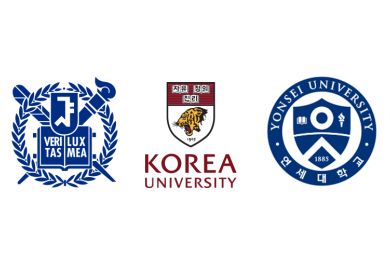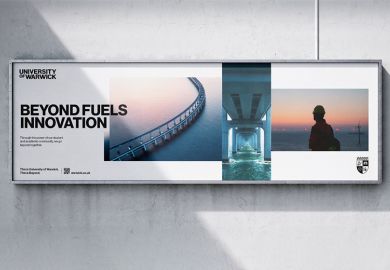Rachel Sandison was appointed vice-principal for external relations at the University of Glasgow last month, in addition to her role as executive director of external relations. Her appointment means that half of Glasgow’s senior management group are women. She joined Glasgow as director of recruitment and international in 2013, having previously worked at the University of Aberdeen as director of marketing.
Where and when were you born?
Aberdeen Royal Infirmary, 15 December 1979.
How has that shaped who you are?
After attending a low progression school, I was the first member of my family to go to university. I’m sure that can’t fail to inform the person you become; I’ve always felt as if I have a point to prove.
What’s your most memorable moment at university?
The day I went to view my final results [at Aberdeen]. Seeing that I had gained a first and been awarded the Seafield Medal for English Scholar of the Year seemed completely improbable at the time. I remember going home and bursting into tears. My dad thought that I had failed and started to console me.
Have you had a eureka moment in your career?
During my graduate internship I had to enter a nationwide competition to win branded bottles of water. I came up with the slogan “Water Place to Study!” for our open day and won the first prize of 1,000 bottles. That was definitely a moment when I thought, “I can do this, and I enjoy it.” I still have one of the bottles 16 years on, and I still rate the slogan.
What hurdles have you faced in your career?
Often the biggest I’ve faced are the ones I’ve placed before myself. I can still suffer terribly from impostor syndrome. I remember thinking when I joined Glasgow six years ago what an awful mistake they had made. I’m now a vice-principal, so either I’m a very convincing con artist or I actually add value to the organisation. I’m now opting for the latter, and would urge others to do the same.
It can be unusual for a non-academic to become a university vice-principal. What benefits does your experience bring to the role?
I dislike the term “non-academic”. It’s important to describe what I am, as opposed to what I am not: I am a member of the university’s professional community and bring an additional and important perspective to the senior management team. It’s unfortunate that the dichotomous rhetoric of academic versus non-academic still exists, when we are all colleagues working towards the same institutional goals. That said, I appreciate that I am a novelty within the sector, but thankfully I see this changing.
What are the best aspects of your job?
I feel constantly inspired by our world-changing higher education community. I love the fact that no two days are the same: I could be meeting prospective students or alumni in Malaysia, overseeing a major branding exercise, developing a new bilateral partnership or giving evidence to a select committee in Westminster, sometimes all within the same week.
And the worst?
The jet lag. I’m a slave to my body clock.
How has student recruitment changed in the past decade?
Enormously. Historically selective universities have found themselves having to actively recruit students due to demographic challenges, government policy and increased competition. The platforms used to communicate with prospective students have evolved significantly and, as a result, engagement and hyper-personalisation have usurped traditional broadcasting. Our audience is now Generation Z, with higher expectations and more choices than ever before. I find it exhilarating if not a little exhausting.
What are the biggest challenges women face in higher education?
The same challenges that working women face everywhere. We need to review mechanisms for flexible working, reward and recognition and ensure appropriate support systems for professional development and mentoring. They say “you can’t be what you don’t see”, so I am incredibly fortunate to have female role models within the institution and across the sector. As an Aurora [female leadership] mentor, I hope to do the same for the next generation of female leaders.
If you were the universities minister for a day, what policy would you immediately introduce to the sector?
Can I be the prime minister? If so, I would immediately halt Brexit and reintroduce the post-study work visa. Our entirely ill-conceived immigration policies are crippling the UK’s global competitiveness for talent and this needs to be urgently addressed.
What brings you comfort?
The people whom I love who I am lucky enough to have in my life, and mac ’n’ cheese – specifically my mum’s.
What saddens you?
Ignorance. I think, as a sector, we have a duty to engage with our communities and tear down some of the perceived ivory towers. We are undertaking life-changing research in the pursuit of knowledge and addressing some of the world’s greatest challenges. We need to be far better at communicating this.
What keeps you awake at night?
Emails. As soon as something pops into my head I have to grab my phone, which I keep right beside my bed, despite all the advice not to.
What advice would you give to your younger self?
Do more of what makes you happy and worry less. I’ve also always found that the more passionate I am about a project, the more successful that project is. That’s no coincidence; do what you love. Also, please don’t perm your hair – it will never fully recover.
anna.mckie@timeshighereducation.com
Appointments
Thomas Katsouleas has been chosen as the next president of the University of Connecticut. The 60-year-old electrical engineer will join the state’s flagship university from the University of Virginia, where he has been provost since 2015. Prior to that he was the dean of Duke University’s engineering school. He will replace Susan Herbst, who has led Connecticut since 2011. Thomas Kruger, chair of Connecticut’s board of trustees, said Professor Katsouleas had “a deep and comprehensive understanding of what makes a major research university work and what success looks like”.
Suresh Garimella is set to become the next president of the University of Vermont after he was named the sole finalist for the position. Professor Garimella, who is executive vice-president for research and partnerships at Purdue University in Indiana, is due to be confirmed in the position later this month, said David Daigle, who chairs Vermont’s board of trustees. Mr Daigle said thatthe board would not have named the Indian-born mechanical engineer as their preferred candidate “unless we had complete confidence that this was the direction that was right for the university”.
Andrew Kuchins is to become president of the American University of Central Asia. Now a professor at Georgetown University’s Center for Eurasian, Russian, and East European Studies, Professor Kuchins will take charge of the Kyrgyz university in May.
Geoffrey Crisp has been appointed the new deputy vice-chancellor (academic) of the University of Canberra. He is currently pro vice-chancellor (education) at the University of
New South Wales, and will start at Canberra at the end of March.
Ben Garrod has been appointed professor of evolutionary biology and science engagement at the University of East Anglia. The author and award-winning broadcaster regularly appears as a science presenter on BBC television programmes, including The One Show and Springwatch.
Register to continue
Why register?
- Registration is free and only takes a moment
- Once registered, you can read 3 articles a month
- Sign up for our newsletter
Subscribe
Or subscribe for unlimited access to:
- Unlimited access to news, views, insights & reviews
- Digital editions
- Digital access to THE’s university and college rankings analysis
Already registered or a current subscriber?
